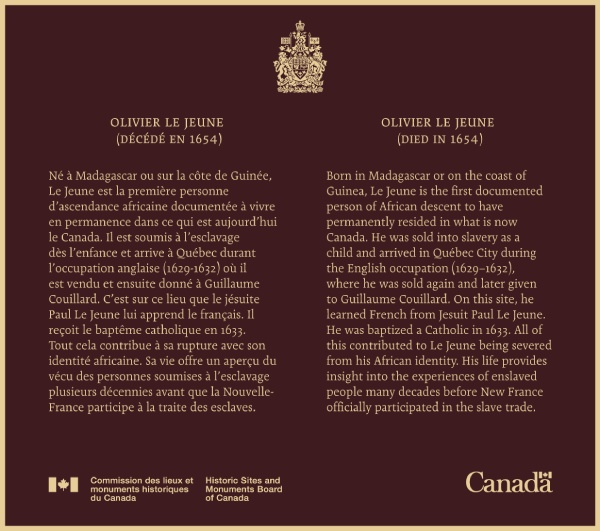Olivier Le Jeune National Historic Person
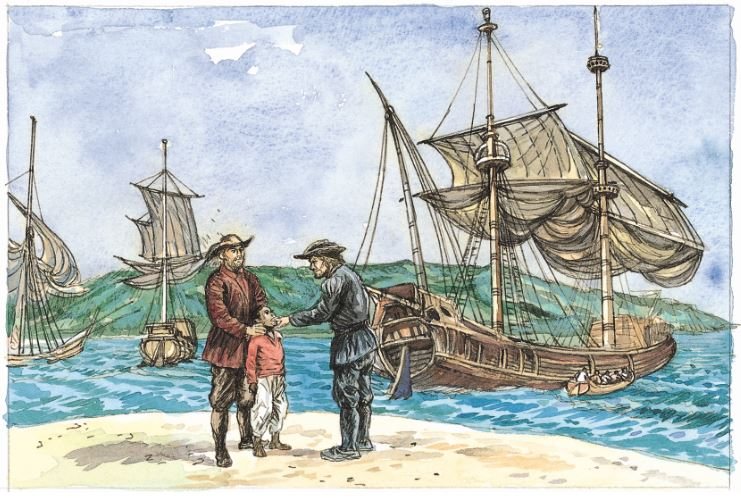
© Wang Qijun, 2003
Olivier Le Jeune was designated as a national historic person in 2022.
Historical importance: first documented person of African descent living on a permanent basis in Canada (New France), provides a glimpse into the experiences of enslaved people based on historical records.
Commemorative plaque: Cartier-Brébeuf National Historic Site, 175 de l'Espinay Street, Québec, QuebecFootnote 1
Olivier Le Jeune (died in 1654)
Born in Madagascar or on the coast of Guinea, Le Jeune is the first documented person of African descent to have permanently resided in what is now Canada. He was sold into slavery as a child and arrived in Québec City during the English occupation (1629–1632), where he was sold again and later given to Guillaume Couillard. On this site, he learned French from Jesuit Paul Le Jeune. He was baptized a Catholic in 1633. All of this contributed to Le Jeune being severed from his African identity. His life provides insight into the experiences of enslaved people many decades before New France officially participated in the slave trade.
Olivier Le Jeune
Olivier Le Jeune was the first documented person of African descent to have lived on a permanent basis in Canada (New France) during the first half of the 17th century, as well as the first person of African descent known to have been enslaved in the colony, decades before it became a participant in the Atlantic slave trade. Le Jeune’s life, from his birth in either Madagascar or Guinea, to being forced to come to the Americas, to being reduced to personal property, provides a glimpse into the experiences of enslaved people based on historical records. In Québec City, for example, he learned the basics of the Catholic faith and the French language before being baptized in 1633, an act that contributed to the process of dehumanizing enslaved people of African descent, stripping them of their identities and connections to communities in Africa.
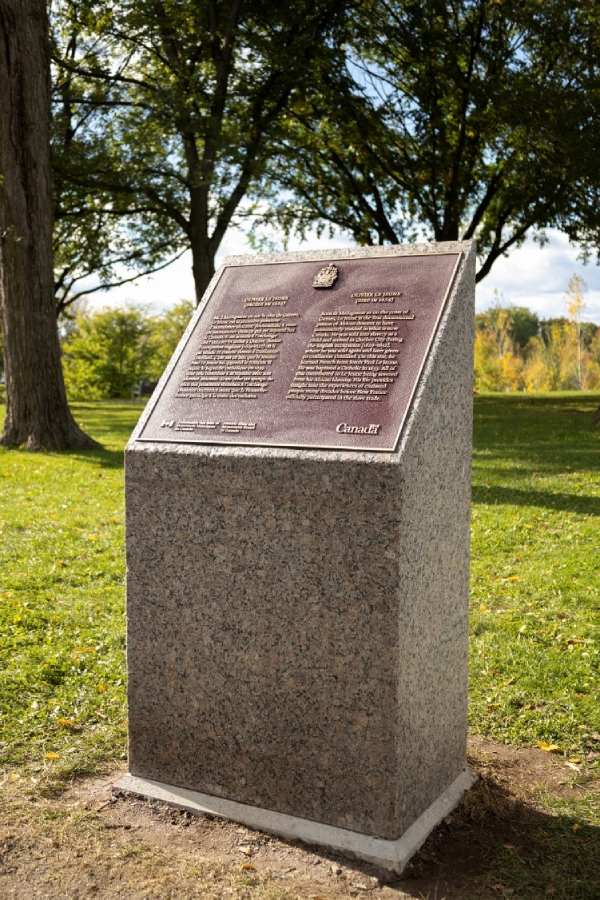
© Parks Canada
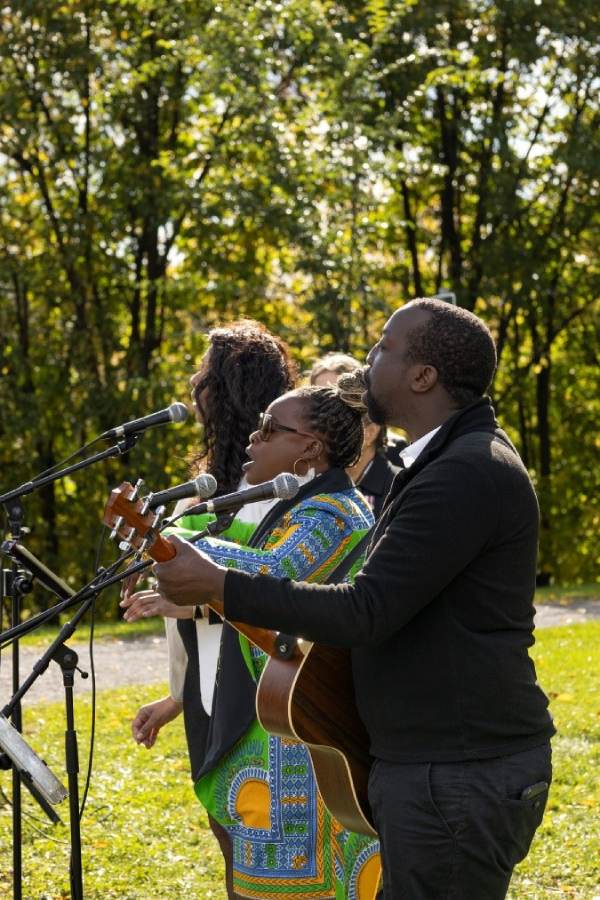
© Parks Canada
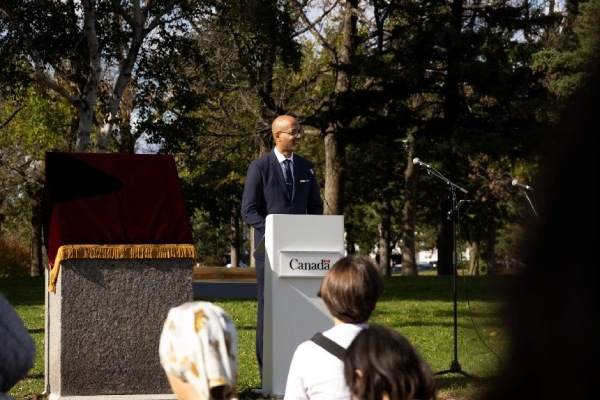
© Parks Canada

© Parks Canada
Few details are known about Olivier Le Jeune. He is thought to have been from either Madagascar or Guinea. Enslaved at a very young age, he was transported to Europe, where, on an unknown date, he was “given” to one of the three Kirke brothers. Between 1629 and 1632, an English privateer “sold” Le Jeune for 50 écus to Le Baillif, a French clerk who worked for the English. When England returned Quebec to France in July 1632, Le Jeune was “given” to Guillaume Couillard de Lespinay, who sent him to the Jesuit priest Paul Le Jeune to learn the basics of the Catholic religion and the French language.
"Olivier Le Jeune embodies many things. While he was the first person to be enslaved in Canada, he was also the first African to live here permanently. He enables us to understand the plurality of our past, from the beginnings of the French colony."
"To share the history of Olivier le Jeune is to acknowledge the first enslaved African (that we have a name for), and it underscores the reality that slavery existed on the lands we now call Canada for almost 200 years. We honour Olivier le Jeune since he represents a painful part of our past while we work towards greater inclusion and equity for all."
In early August, when asked if he wanted to be baptized, the young African boy told Father Le Jeune and Guillemette Hébert that he feared if he was baptized he would lose his identity. His fear was so strong that Father Le Jeune postponed the baptism until 14 May 1633. The boy was baptized as Olivier, after Olivier Le Tardif, head clerk of the Company of One Hundred Associates. It may have been around the same time that he became known as Olivier Le Jeune.
In 1638, Olivier Le Jeune was accused of slander. He had alleged that Nicolas de Saint-Aignan Marsolet received a letter from Le Baillif, who was considered a traitor for having collaborated with the English. Marsolet was a former interpreter who had become the Seigneur de Bellechasse (Berthier). In defence of his reputation and not wanting to be linked with Le Baillif, Marsolet filed a lawsuit against Le Jeune. Le Jeune was found guilty of slander and ordered to seek Marsolet’s forgiveness and suffer the torture of 24 hours in iron chains.
Olivier Le Jeune died on 10 May 1654 when he was in his thirties. In his burial record, the priest wrote only that Le Jeune was a servant.
This press backgrounder was prepared at the time of the plaque unveiling in 2023.
Historic designations: In their own words | Olivier Le Jeune
Watch these unique video testimonials from members of the Black community in Canada, sharing their perspectives on the importance of connecting with the past and commemorating history in Canada.
Olivier Le Jeune | National Historic Persons
Transcript
[An illustration is shown on screen of three persons, waterfront and ships.]
Text slide on screen:
Olivier Le Jeune is the first documented person of African descent to live permanently in what we now call Canada.
[An illustration of a map of the city of Québec is shown on screen.]
Olivier Le Jeune arrived in the city of Québec in 1629, and was sold into slavery from his early childhood.
[An illustration of a kid and two adults is shown on screen.]
Olivier Le Jeune National Historic Person[Transitions to Aly Ndiaye, Quebec Representative at the Historic Sites and Monuments Board of Canada, standing next to commemorative plaque, speaking to the camera.]
Aly Ndiaye:
For me, it’s a day that makes me, that makes me quite emotional, I would say.
[Transitions to footage of people clapping hands during plaque unveiling ceremony.]
[Background image of a group of people standing next to commemorative plaque.]
Text slide on screen:
Commemorative plaque unveiling Cartier-Brébeuf National Historic Site, Québec, Quebec October 13, 2023
Presented by The Historic Sites and Monuments Board of Canada and Parks Canada
[Transitions to Aly Ndiaye, Quebec Representative at the Historic Sites and Monuments Board of Canada, standing next to commemorative plaque, speaking to the camera.]
Aly Ndiaye:
We are currently at the Cartier-Brébeuf National Historic Site of Canada. We just unveiled a plaque for Olivier Lejeune, who is now a person of national historic importance.
[Transitions to Rosemary Sadlier, Author, educator and former president of the Ontario Black History Society, standing next to commemorative plaque, speaking to the camera.]
Rosemary Sadlier:
This plaque unveiling is incredibly important to me and I think to all Canadians because it marks the formal beginning of enslavement of Africans and the process of enslaving human beings in this country.
[Transitions back to Aly Ndiaye speaking to the camera.]
Aly Ndiaye:
A very significant element for me is the presence of the children today. The fact that children can attend the plaque unveiling. That they can get to know Olivier Lejeune.
[Footage of Aly Ndiaye singing and dancing on a stage in front of dancing crowd. Back to Aly Ndiaye speaking to the camera.]
Aly Ndiaye:
He represents the first subjugated person here. The first enslaved person here within a colonial context. I want Canadians to be able to understand, through this designation, the importance of commemorating our past.
[Transitions to Rosemary Sadlier speaking to the camera.]
Rosemary Sadlier:
A history that isn't shared very often, but which is part of the foundation of Canada, because it took place on the lands we now call Canada for over 200 years.
[Footage of Aly Ndiaye singing and dancing with dancing crowd. Performers and musicians are smiling in front of crowd.]
Text slide on screen:
Since its creation in 1919, the Historic Sites and Monuments Board of Canada (HSMBC) has played a leading role in identifying the important stories that have shaped our country.
Parks Canada supports the HSMBC in the commemoration of persons, places and events of national historic significance.
Learn more about the history of Canada: parks.canada.ca/culture
Still photos courtesy of:
Illustration ValMO, writer Webster.
Grain de sable (Le), Olivier Le Jeune, premier esclave au Canada.
Septentrion, 2019
Kids Can Press LTD. / Wang Qijun
Library and Archives Canada
Ministère de la Culture et des Communications
The National Program of Historical Commemoration relies on the participation of Canadians in the identification of places, events and persons of national historic significance. Any member of the public can nominate a topic for consideration by the Historic Sites and Monuments Board of Canada.
- Date modified :
